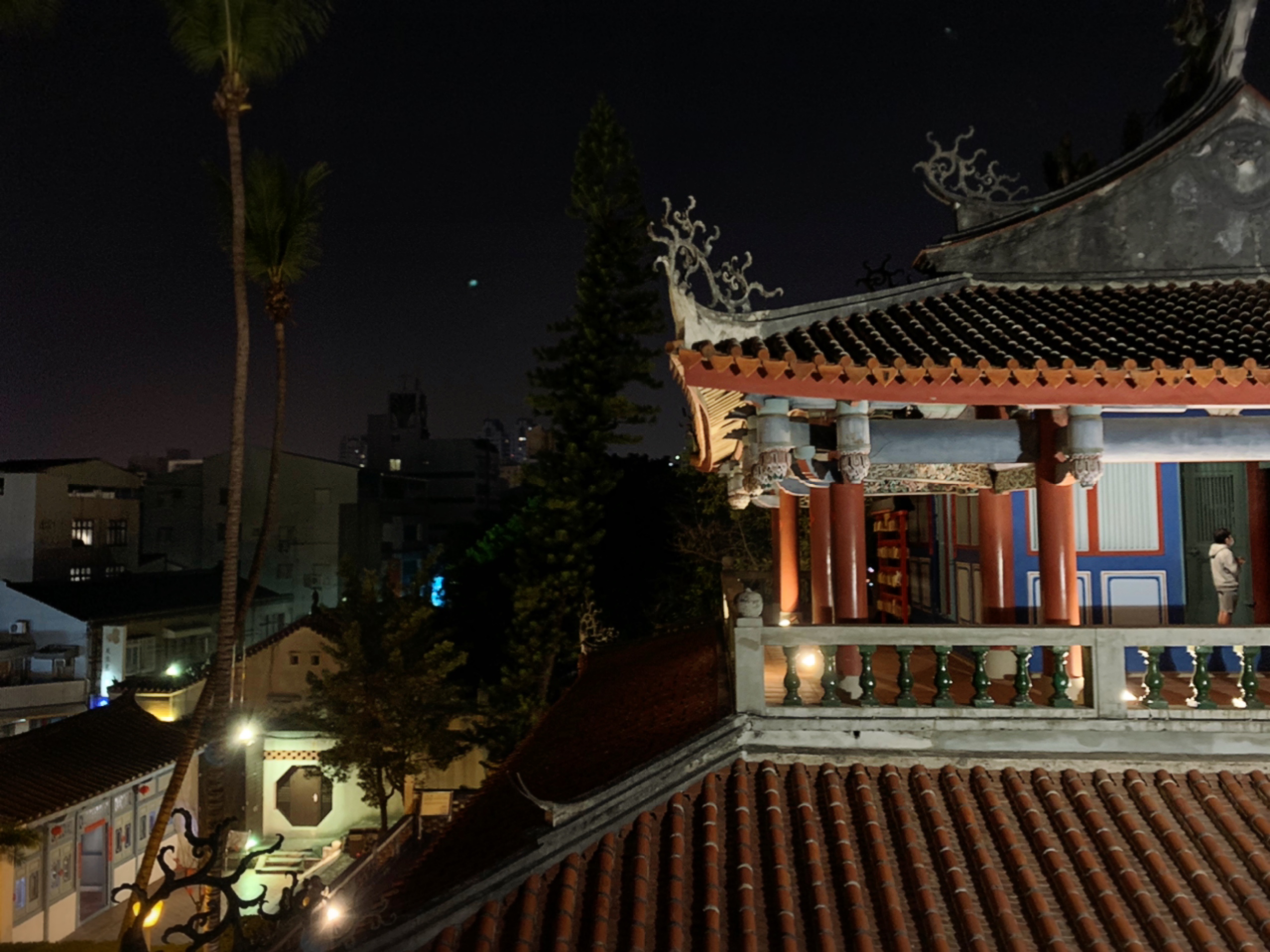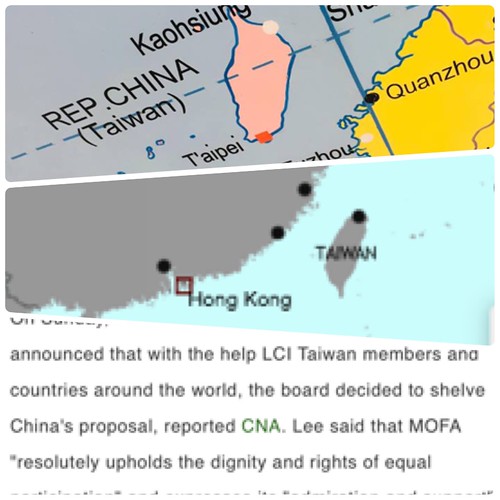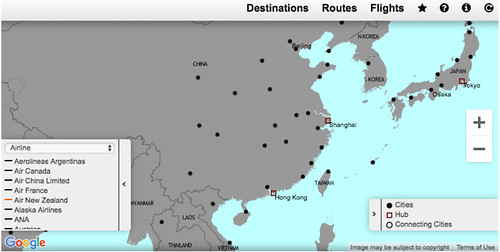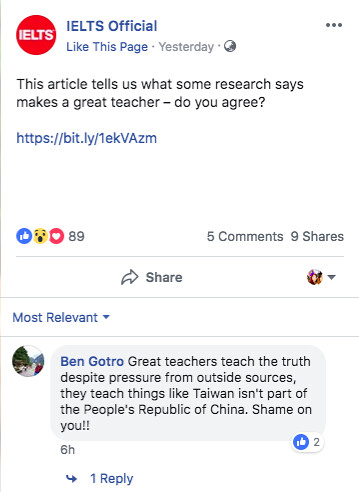
Massive structures can make individuals feel small.
Less than a year ago, I sat down for a meeting with my coworkers at one of the purveyors of the IELTS exams in Taiwan. I was in the hot seat for offering my frank opinion on the IELTS Partnership's decision to bend over for the CCP and list Taiwan as "Taiwan, China" on their online registration site. I was an examiner at the time; the fact that I am discussing this publicly now means I no longer am.
I had assessed IELTS's cowardly, dictator-appeasing and politically-charged choice with exactly the sort of candor that those who know me might expect; more than a few profanities were unleashed. I am not sorry about this, and frankly, that's not the reason why things turned out the way they did.
After several (non-profane) letters of complaint, I had already cut back my work as an examiner to the minimum necessary to maintain my certification in the hope that one day the organization would "see the light" and I could work for them in good conscience again. But I was fuming inside; it ate at my guts like swallowing battery acid. Working for a soulless corporate behemoth that I wasn't even making much money from made me feel reckless (it's hard to find public information but I have it on good authority that IELTS examiners in Southeast Asia, where the cost of living is generally lower than Taiwan, are paid more per candidate than examiners in Taiwan). The corporate superstructure of the testing industrial complex didn't care about Taiwan, so why should I care about them?
So I rolled the dice. I knew there was a recorder on when I unloaded on a sympathetic coworker. I knew it was most likely that nobody who cared would hear that recording, but that there was a small chance someone would. I considered it something akin to an act of protest. I even said "yeah this is all being recorded," so I knew what I was doing. Of course, I ensured that no candidates were within earshot; I always strove to be professional around them, as they'd paid for the (very expensive) test and had pinned their hopes for the future on it.
I'm not much of a gambler, but it seems I struck the jackpot: someone did hear it, which is how I found myself explaining to even more coworkers why I did what I did.
I don't want to give too many details of an off-the-record conversation, but I came away realizing that my Taiwanese colleagues agreed with my fundamental stance and the ethical difficulties that came with working for such a company, even if they could not condone the way I'd chosen to vent my frustrations. After all, they had jobs that they wanted or perhaps needed to keep.
To be honest, I was willing to sign the disciplinary letter I knew I'd receive for what I'd said in the office. I'd knowingly broken the rules, I'd made my point, but I liked them -- my coworkers. I knew that the higher echelons of the testing industrial complex might be rotten, but they were not.
Eventually, the letter arrived. That was when I found out that I was also being ordered to take down a blog post on this topic, despite the fact that I did not identify myself as an examiner in it or any other posts at that time (examiners are not permitted to reveal their status on public platforms). Simply writing about this topic under my name was enough: if I wanted to keep examining, I would have to take down not only the post they'd found, but any other posts as well.
I would have signed the letter if it had just been about my outburst at the office; it was a contained incident, not a wider act of free speech. Although I understand that plenty of companies require their employees and contractors not to talk about work issues on social media, I wasn't willing to zipper my own mouth for them.
In fact, part of my contract required that I not harm the "integrity" of the IELTS exam or IELTS Partnership. Since I felt that their politically-motivated act of cowardice, which insulted the Taiwanese candidates they were charging for the exam, was itself a degradation of the "integrity" of the organization, I wondered exactly what "integrity" my silence and complicity would be helping to maintain. If I'd decided to debase myself and delete posts whose truth I believed in -- to destroy my own sense of integrity -- I would have been able to continue.
But I said no, and told them why. When my examiner status was rescinded, I appealed, but not to try and get my "job" back. That didn't matter. Appealing requires more people in the organization to confront the issue, and frankly simply gave me the chance to escalate my protest. Being a thorn in their side was the real win.
This happened in late 2020. I've been sitting on it for ages. Why write about it now?
Partly it's because the issue of foreign companies standing up to China is back in the news, with Uyghur slavery being linked to Xinjiang cotton. It's time we discussed IELTS's complicity in Chinese bullying of Taiwan again. The issue has got this experience back on my mind.
But the truth is, I also waited because I do worry what the consequences will be for my former coworkers; the good people who were (quietly) on my side. They also defended another examiner who got in trouble for his own writing about this issue, more successfully. Is it worth it to continue speaking up about a larger organization mistreating Taiwan when it could result in Taiwanese citizens -- good people, whom I know personally -- facing repercussions?
I don't know. Speaking up feels like an act of privilege: I get to say my piece, and if there are consequences, I won't be the one to bear them. It was a privilege to have the resources to walk away from that job. Not everyone can.
But it's unclear that a single post on a blog with regional popularity will make any sort of consequential impact, and not speaking up means allowing a larger systemic rot to fester without trying to keep public attention on it. If nobody speaks up, nothing is ever said.
So, please consider this an attempt to find some sort of middle ground. The original intent was to write something more damning, a call to action. I won't. As much as I dislike the IELTS Partnership, from a personal standpoint, I cannot do that to Taiwanese people who care about this country and were good to me, who are just trying to make a living.
I won't tell you which purveyor is involved (there's more than one). I won't tell you not to examine for IELTS. I even considered not stating their name, as TOEFL does the same thing, but it doesn't matter: my previous posts identify the organization in question. I would still warn potential examiners that any attempt to express an opinion about IELTS -- including their treatment of Taiwan -- could land you in trouble. If you care about standing up for Taiwan, this may be a dealbreaker for you. They can get political, but you can't.
If you can accept company policy and perhaps stand up for Taiwan in other ways, that's your choice and you shouldn't be judged for it.
There may come a time when I regret writing this; standing up publicly for your political beliefs can have repercussions down the road. Perhaps one day my finances will be dire and I'll need a job, and this post will stand in the way. Perhaps the political climate will grow so dangerous due to CCP influence that I'll have to make a hard choice. Perhaps good people will face consequences I never intended, and I'll feel the personal pull to take it down. I wouldn't want to be judged for that either.
Regardless of what happens, remember the Big Bad here is also the big organization and the testing industrial complex in general, not the individuals who just want to keep their jobs in a difficult world.






